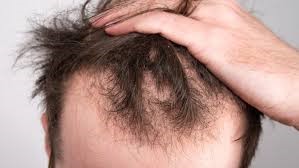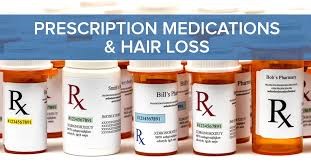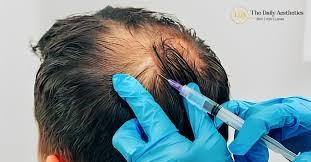
Do Hair Loss Medications & Treatments Really Work?
Hair loss can strike at any time in your life time. And whether you’re young or old, male or female, you could be a victim of hair loss and its after effects of sapping your confidence and making you shy in your social life.

Hair loss has multiple triggers, including:
Fortunately, there are many effective hair restoration treatments that can help restore your hair, but the right treatment to go for depends on the cause of your hair loss. At DNCC we offer several effective treatments that are personalized according to your type of hair loss and based on your unique needs.
One question Dr. Nishita, founder of DNCC hears from her patients repeatedly is that whether prescription hair loss medications really work. Keep reading to learn more about hair loss medicines and whether they can help restore your hair.
Do hair loss medications actually work?
Different hair loss medications are available. Some are prescription-strength but available over-the-counter, like minoxidil, while others require a prescription from your physician, like finasteride.

Hair loss medications can work effectively for patients at certain stages of hair loss or with specific types of hair loss. It’s important to have your hair loss evaluated by a hair loss expert to learn if they can help you.
Results are impressive for many users. For example, topical prescription-strength minoxidil helps about 50% of people who use it regrow hair, while for about 40% the medicine helps stop additional hair loss but offers no regrowth.
And with the popular prescription oral hair loss medication, finasteride, which is FDA-approved, about two-thirds of users see regrowth. With all medications, results depend on continued use.
There are also off-label medications doctors use to treat hair loss, like corticosteroids, antifungal medications, blood pressure medications, and anti-androgens. These therapies can help slow or stop hair loss, but require medical supervision.
Can hair loss medication help restore my hair?
Not all hair loss medications work equally well for everyone. The best way to learn if medication can help restore your hair is by scheduling a consultation with a hair loss expert.
At DNCC, Dr. Nishita approaches hair loss from a medical perspective—not as a salesperson. She evaluates your symptoms, family history, and scalp before making personalized hair restoration treatment suggestions.
This means you won’t spend valuable time or money on medications that may or may not be effective in your unique situation. For several patients, Dr. Nishita may suggest using custom-blended, prescription or prescription-strength hair loss medications.
Hair loss medications come in both oral and topic form, and our team has medications available for both men and women. Different medications work in different ways, and depending on the blend recommended for you, they can:
Hair loss medicines typically take about three to six months before noticeable results appear. This is because they work with your natural hair growth cycle.
Most people tolerate hair loss medications well; however, side effects are possible. Dr. Nishita reviews these with you before you start taking them, as they depend on the specific medication being used.
For optimal results, Dr. Nishita or our other hair loss experts may recommend combining hair loss medication use with other hair restoration therapies, such as low-level laser therapy (LLLT) or platelet-rich plasma (PRP) therapy. This strategy has worked wonders in the life of thousands of patients who have got back their hair and along with it their confidence.

Ready to learn if prescription hair loss medications can help restore your hair? Schedule a consultation with Dr. Nishita or our other hair loss experts at any of our DNCC clinics closest to you.